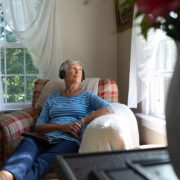The Factors to Consider When Choosing A Senior Living Center
When it comes to selecting a senior living center, one of the paramount considerations is the level of care required for each individual. Seniors have diverse needs, ranging from independent living to specialized care for conditions such as Alzheimer’s or other age-related ailments.
Independent Living
For those who are still active and self-sufficient, independent living communities provide an environment that fosters autonomy. These centers often offer social activities, amenities, and housing options suited for seniors who do not require assistance with daily activities.
Assisted Living
Seniors who need some help with daily tasks, such as bathing, dressing, or medication management, may find assisted living centers suitable. These facilities provide a balance of independence and assistance, offering residents the support they need while respecting their privacy.
Memory Care
For individuals with cognitive impairments like Alzheimer’s or dementia, specialized memory care units within senior living centers are designed to provide a secure and supportive environment. Trained staff and tailored programs cater to the unique challenges faced by residents with memory-related conditions.
Budgetary Considerations for a Senior Living Center
Finances play a pivotal role in the decision-making process when it comes to senior living. Families must consider both the immediate costs and potential long-term financial implications.
Upfront Costs
Different facilities have varying fee structures, including entrance fees, security deposits, or community fees. Understanding these upfront costs is crucial to avoid financial surprises and ensure a smooth transition into the chosen senior living center.
Monthly Expenses in a Senior Living Center
The ongoing monthly expenses for senior living encompass rent, utilities, meals, and additional services. Families should carefully review the fee breakdown to determine the overall affordability of the chosen center, factoring in the senior’s income, savings, and potential financial assistance.
Long-Term Financial Planning
As seniors age, their care needs may evolve, potentially leading to increased costs. It is wise to consider the long-term financial stability of the chosen facility and assess how well it can adapt to changing care requirements without causing undue financial strain.
Strategic Senior Living Center Location Choices
The location of a senior living center significantly influences the quality of life for its residents. Families should consider both the proximity to their own homes and the surrounding community.
Family Accessibility
Selecting a senior living center close to family members facilitates regular visits and emotional support. Being nearby allows family and friends to actively engage in the resident’s life, fostering a sense of connection and belonging.
Community Amenities
Assessing the amenities and services available in the surrounding community is essential. Proximity to hospitals, pharmacies, grocery stores, and recreational facilities contributes to the overall well-being of seniors, ensuring they have easy access to essential services and activities.
Climate and Environment in a Senior Living Center
Consider the climate and geographical location of the senior living center. Some seniors may prefer milder climates, while others may have specific preferences based on their health conditions. Additionally, a serene and safe environment can positively impact the overall experience for residents.
In conclusion, choosing a senior living center is a multifaceted decision that requires careful consideration of the individual’s care needs, budgetary constraints, and the location of the facility. By thoroughly evaluating these factors, families can make informed choices that prioritize the well-being and happiness of their loved ones in their golden years.
Looking for more information about Oxbow Senior Living? Click here to learn more about Oxbow!
Oxbow Living offers Assisted Living & Memory Care out of Nebraska and to the Surrounding Cities: Ashland, South Bend, Greenwood, Murdock, Elmwood, Ithaca, Mead








